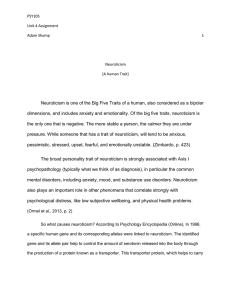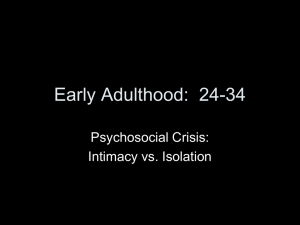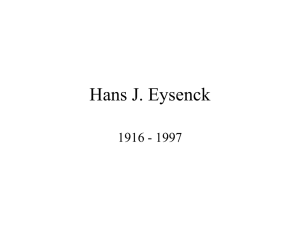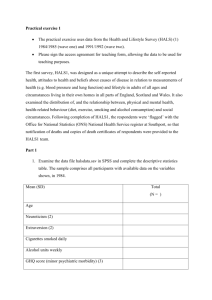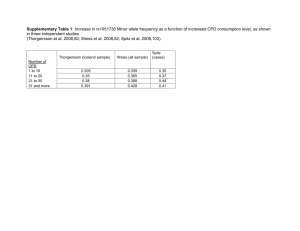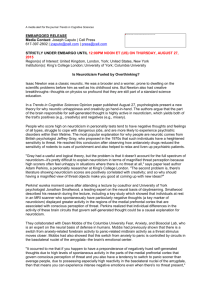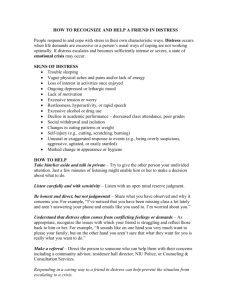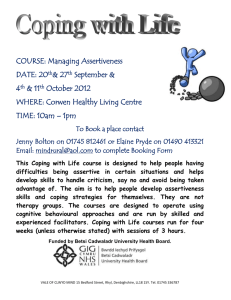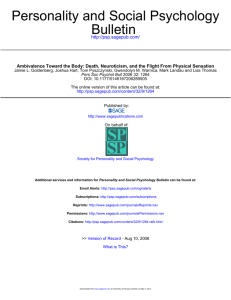ABSTRACT OF THE DISSERTATION
advertisement
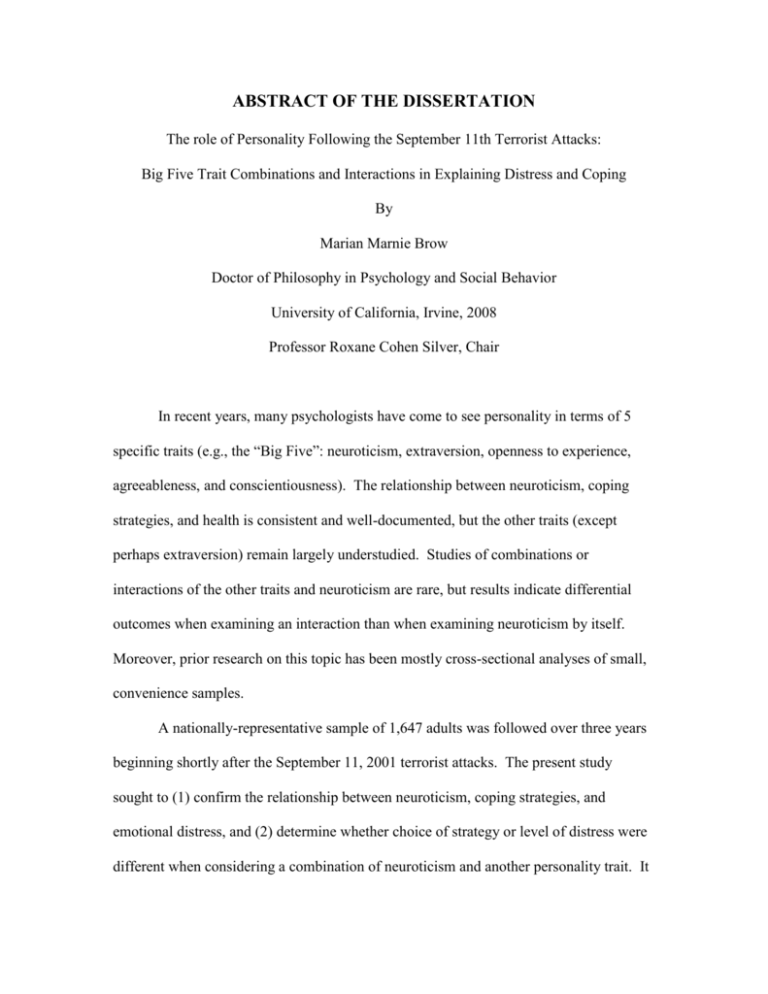
ABSTRACT OF THE DISSERTATION The role of Personality Following the September 11th Terrorist Attacks: Big Five Trait Combinations and Interactions in Explaining Distress and Coping By Marian Marnie Brow Doctor of Philosophy in Psychology and Social Behavior University of California, Irvine, 2008 Professor Roxane Cohen Silver, Chair In recent years, many psychologists have come to see personality in terms of 5 specific traits (e.g., the “Big Five”: neuroticism, extraversion, openness to experience, agreeableness, and conscientiousness). The relationship between neuroticism, coping strategies, and health is consistent and well-documented, but the other traits (except perhaps extraversion) remain largely understudied. Studies of combinations or interactions of the other traits and neuroticism are rare, but results indicate differential outcomes when examining an interaction than when examining neuroticism by itself. Moreover, prior research on this topic has been mostly cross-sectional analyses of small, convenience samples. A nationally-representative sample of 1,647 adults was followed over three years beginning shortly after the September 11, 2001 terrorist attacks. The present study sought to (1) confirm the relationship between neuroticism, coping strategies, and emotional distress, and (2) determine whether choice of strategy or level of distress were different when considering a combination of neuroticism and another personality trait. It was hypothesized that the other trait would moderate the relationships between neuroticism, ineffective coping strategies, and emotional distress. Hierarchical linear regression was used for cross-sectional examination of coping strategies employed after 9/11, and multilevel modeling was used for longitudinal examination of differences in emotional distress over a three-year period following the attacks. Neuroticism followed the same pattern in this large, heterogeneous sample as in previous research. Specifically, the greater the neuroticism, the greater the use of maladaptive coping strategies in the immediate aftermath of 9/11, such as denial and selfblame, and the lesser the use of effective strategies, such as active coping and acceptance. In addition, the greater the neuroticism, the higher the level of emotional distress respondents reported. Results for trait combinations were mixed. Combinations did not predict differential use of coping strategies, but in longitudinal analyses, did predict lower initial levels of distress compared with neuroticism alone. Relationships with change in distress over the three years varied, depending on the model. This study suggests that it would be valuable for researchers to move away from a singular focus on neuroticism and begin to broaden our understanding of the Big Five traits in their various combination
